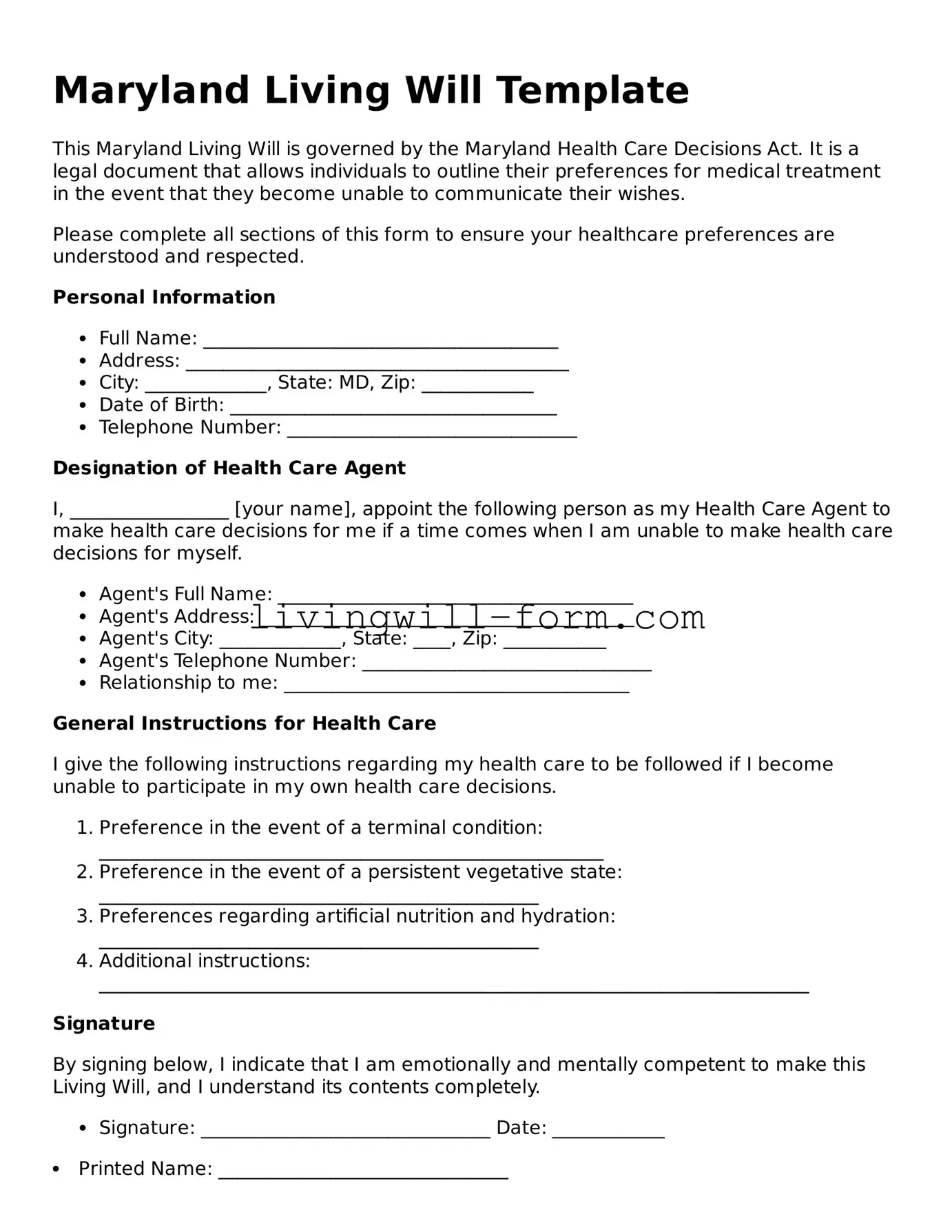Attorney-Verified Maryland Living Will Template
A Maryland Living Will form is a legal document that outlines an individual's wishes regarding the type of medical care they desire if they become incapacitated and are unable to communicate these preferences themselves. It serves as a crucial directive for physicians and family members, guiding them through difficult decisions concerning life-sustaining treatments. Emphasizing the importance of having one's healthcare preferences documented in advance, this form ensures that the individual's autonomy is respected even in circumstances where they cannot voice their decisions.
Access This Living Will

Attorney-Verified Maryland Living Will Template
Access This Living Will

Access This Living Will
or
▼ Living Will PDF
Finish the form and move forward
Edit and finish your Living Will online fast.